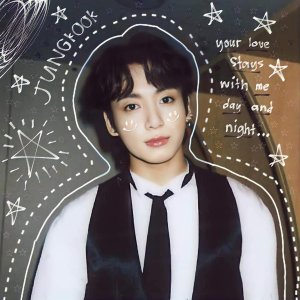This review may contain spoilers
The price of power, love, principle and loyalties.
Legend of the Female General attempts to blend individual struggles with the wider currents of power, love, and morality, and what stands out most immediately are its characters, though their depth and narrative treatment leave space for critique.
He Yan emerges as the most compelling figure, shaped by her unusual childhood where she was forced to stand in for her brother. The drama portrays her as perceptive, practical, and painfully aware of the restrictions society places on women, yet also fiercely determined to challenge them. What complicates her is the contradiction she carries—resenting her brother for reclaiming the identity she built, while never fully acknowledging that this unconventional upbringing granted her resilience and clarity far beyond her peers. Her tragedy lies in endless pretense, forever wearing a mask, yet her triumph is the way she never allowed that disguise to fully consume her essence. Her advice to women around her, urging them to remain themselves even when life demands sacrifice, echoes her own journey and lends the character extraordinary poignancy.
Xiao Jue, on the other hand, feels underwritten despite being her counterpart. While the drama gives him gravitas and presence, it denies him vulnerability and layered humanity. His interactions in court and in romance reveal little beyond his attachment to He Yan, reducing his arc to a reflection of hers rather than a narrative of his own. His elder brother’s remark that he suppresses emotion is left unexamined, and instead of growth we are given a static portrait, handsome but hollow.
Xu Jingfu and Chu Zhao require joint consideration, because their fates intertwine like mirror images across generations. Xu Jingfu is drawn as an authoritative father whose principles begin noble—placing national welfare above selfish desire—yet years of power corrode this idealism until he can no longer distinguish patriotism from corruption. His desperate defense during the banquet, insisting his misdeeds served the country, felt less like persuasion of others and more like self-justification. Chu Zhao, the younger counterpart, initially rebels against this decay, even cooperating with He Yan and Xiao Jue. However, his transformation into a ruthless figure after Xu Jingfu’s death reflects how principles, when warped by ambition, can erase clarity. Together they embody the cycle of idealism twisted by circumstance, revealing how conviction without reflection becomes dangerous.
Yet, to fully understand Chu Zhao, one must bring Ying Xiang into the discussion. Deprived of unconditional affection after his mother’s passing, he craved a love that did not demand achievement. Xu Jingfu’s care, though present, was transactional, always requiring proof of worth. Ying Xiang offered what he longed for—an unspoken warmth that asked nothing in return, quiet yet constant. Tragically, Chu Zhao failed to notice the sanctuary beside him, seeking validation in harsher places, until her absence revealed what had been sustaining him all along. This dynamic not only enriches his downfall but also underscores how emotional neglect can shape destructive choices.
He Rufei’s arc is drenched in quiet sorrow. A boy robbed of recognition, raised in isolation, watching his name become a vessel for another’s survival, he grew into a man consumed by bitterness. For him, identity itself was contested, every honor claimed under “He Rufei” felt stolen, and the only way he could preserve sanity was by convincing himself he deserved all that was attached to his name. His father’s greed only deepened this resentment, and when parental support turned into complicity in wrongdoing, the fragile foundations of his selfhood cracked further. The tragedy is not simply his envy of He Yan, but the loss of any authentic sense of who he truly was.
In the end, Legend of the Female General delivers remarkable individual sketches, yet struggles to balance them with cohesive execution. Characters brim with potential, their contradictions fascinating, their wounds deeply human, but narrative choices often leave them underexplored. It is a story that shines brightest when it lingers on internal battles rather than political games, reminding us that the greatest wars in history dramas are often the ones fought within the heart.
He Yan emerges as the most compelling figure, shaped by her unusual childhood where she was forced to stand in for her brother. The drama portrays her as perceptive, practical, and painfully aware of the restrictions society places on women, yet also fiercely determined to challenge them. What complicates her is the contradiction she carries—resenting her brother for reclaiming the identity she built, while never fully acknowledging that this unconventional upbringing granted her resilience and clarity far beyond her peers. Her tragedy lies in endless pretense, forever wearing a mask, yet her triumph is the way she never allowed that disguise to fully consume her essence. Her advice to women around her, urging them to remain themselves even when life demands sacrifice, echoes her own journey and lends the character extraordinary poignancy.
Xiao Jue, on the other hand, feels underwritten despite being her counterpart. While the drama gives him gravitas and presence, it denies him vulnerability and layered humanity. His interactions in court and in romance reveal little beyond his attachment to He Yan, reducing his arc to a reflection of hers rather than a narrative of his own. His elder brother’s remark that he suppresses emotion is left unexamined, and instead of growth we are given a static portrait, handsome but hollow.
Xu Jingfu and Chu Zhao require joint consideration, because their fates intertwine like mirror images across generations. Xu Jingfu is drawn as an authoritative father whose principles begin noble—placing national welfare above selfish desire—yet years of power corrode this idealism until he can no longer distinguish patriotism from corruption. His desperate defense during the banquet, insisting his misdeeds served the country, felt less like persuasion of others and more like self-justification. Chu Zhao, the younger counterpart, initially rebels against this decay, even cooperating with He Yan and Xiao Jue. However, his transformation into a ruthless figure after Xu Jingfu’s death reflects how principles, when warped by ambition, can erase clarity. Together they embody the cycle of idealism twisted by circumstance, revealing how conviction without reflection becomes dangerous.
Yet, to fully understand Chu Zhao, one must bring Ying Xiang into the discussion. Deprived of unconditional affection after his mother’s passing, he craved a love that did not demand achievement. Xu Jingfu’s care, though present, was transactional, always requiring proof of worth. Ying Xiang offered what he longed for—an unspoken warmth that asked nothing in return, quiet yet constant. Tragically, Chu Zhao failed to notice the sanctuary beside him, seeking validation in harsher places, until her absence revealed what had been sustaining him all along. This dynamic not only enriches his downfall but also underscores how emotional neglect can shape destructive choices.
He Rufei’s arc is drenched in quiet sorrow. A boy robbed of recognition, raised in isolation, watching his name become a vessel for another’s survival, he grew into a man consumed by bitterness. For him, identity itself was contested, every honor claimed under “He Rufei” felt stolen, and the only way he could preserve sanity was by convincing himself he deserved all that was attached to his name. His father’s greed only deepened this resentment, and when parental support turned into complicity in wrongdoing, the fragile foundations of his selfhood cracked further. The tragedy is not simply his envy of He Yan, but the loss of any authentic sense of who he truly was.
In the end, Legend of the Female General delivers remarkable individual sketches, yet struggles to balance them with cohesive execution. Characters brim with potential, their contradictions fascinating, their wounds deeply human, but narrative choices often leave them underexplored. It is a story that shines brightest when it lingers on internal battles rather than political games, reminding us that the greatest wars in history dramas are often the ones fought within the heart.
Was this review helpful to you?

















